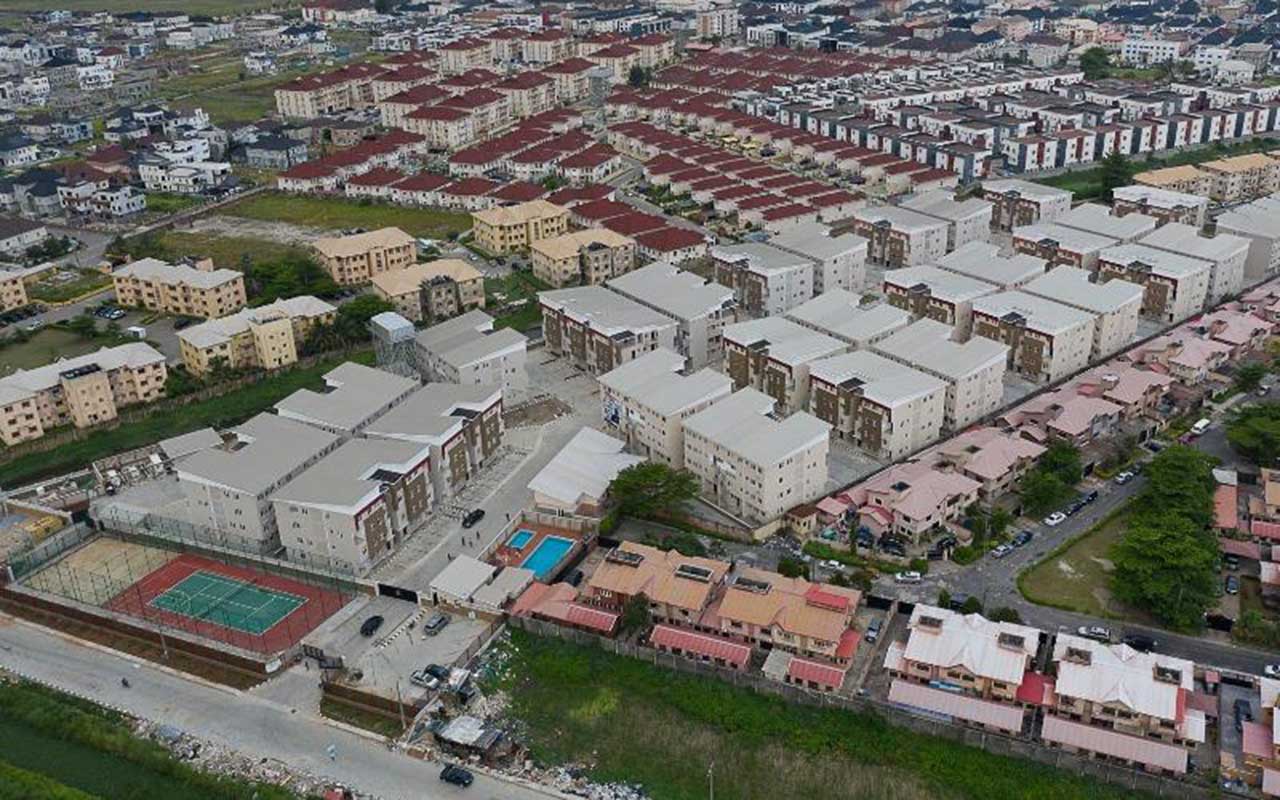Housing cooperatives are often promoted as an affordable alternative to conventional real estate ownership, but in practice, they face structural and perception challenges that make them less attractive, especially to low-income earners who, in theory, should benefit the most. VICTOR GBONEGUN reports.
Amid Nigeria’s acute housing shortage, infrastructural deficits, and the rising cost of living, housing cooperatives, once hailed as a pathway to affordable homeownership, are struggling to sustain momentum.
Once a beacon of hope for workers and low-income earners, the cooperative housing model is now witnessing a decline in both urban centres and corporate organizations.
While the promise of pooling resources to deliver affordable homes remains attractive in theory, in practice, the effectiveness of cooperative housing entities has been hampered by weak governance structures, inadequate regulatory frameworks, a lack of professional coordination among operators, and dwindling member trust. The result is a high rate of failure, leaving the very people the scheme was designed to serve skeptical and hesitant.
The burden of affordability
Cooperative membership often requires sizeable entry fees, monthly contributions, or lump-sum payments that are beyond the reach of many low-income earners. For workers already grappling with daily expenses, school fees, food inflation, and transportation costs, tying down funds for years in a cooperative that may or may not deliver housing is a risky gamble.
This financial reality explains why many Nigerians choose instead to rent or build incrementally in informal settlements, despite the poor living conditions and insecurity such environments bring. For the average artisan, teacher, or civil servant, investing scarce resources into a scheme with uncertain timelines and outcomes feels less secure than the gradual, albeit slower, process of self-building.
Reports indicate that as of June 2023, about 48,856 cooperative societies existed in Southwestern Nigeria alone. By July 2024, Lagos State had registered at least 615 cooperatives. These figures point to a significant spread of the cooperative movement across the country.
Yet, their footprint in the housing sector has been uneven. While notable examples such as the staff housing cooperatives of Shell, Mobil, and Total have successfully delivered hundreds of housing units for their members, most cooperatives, particularly those outside well-funded corporate structures, struggle to replicate similar outcomes.
The Guardian gathered that aside from standout organisations like TotalEnergies Staff Housing Cooperative Multipurpose Society Ltd and Shell Housing Cooperative, the majority of existing ones are bogged down by hurdles ranging from inadequate financing and weak technical capacity to regulatory bottlenecks.
In many developing countries, housing policies do not provide adequate incentives such as tax breaks, grants, or subsidies for cooperatives. Without state backing, cooperative housing cannot compete with commercial developers or government-backed schemes. Many of the systemic issues undermining Nigeria’s housing delivery also affect cooperatives. These include the soaring cost of land and building materials, prohibitive lending rates at about 27 per cent, weak access to real estate finance, and inadequate infrastructure such as roads, electricity, and water.
In addition, bureaucratic bottlenecks in land titling, corruption in land allocation and property management, and poorly enforced government policies worsen the situation. Unlike before, when cooperative housing was a common attraction in workplaces, many workers now shy away due to these challenges, which overshadow the perceived benefits of membership.
Financial and technical limitations
A major drawback is that many cooperatives lack the professional and technical expertise required for complex housing development projects. In many cases, members are unwilling or unable to provide the sustained financial contributions or loan repayments needed to scale construction.
As a result, most housing cooperatives, especially those not backed by large firms, lack the financial muscle to execute big housing projects. Some societies succeed in acquiring land but struggle to progress beyond this stage, leaving projects abandoned and members frustrated.
To address funding gaps, the Federal Mortgage Bank of Nigeria (FMBN) introduced windows such as the Cooperative Housing Development Loan (CHDL). However, most cooperatives still find it difficult to secure the long-term, low-interest loans required to complete projects.
The FMBN’s limited capital base, combined with strict requirements that cooperatives must present unencumbered land titles, has slowed progress. Projects often drag on for years, inflating costs and eroding trust among members.
Land acquisition remains a thorny issue in cities like Lagos and Abuja, as land is not only expensive but also contested and burdened with legal complications. Cooperatives, often lacking strong technical capacity, struggle to navigate this terrain. Understandably, low-income earners are reluctant to commit their savings to schemes that could later collapse under the weight of litigation or demolition orders.
Progress with government support, but gaps remain
To their credit, both the federal government and the FMBN have attempted to support the sector. The launch of the National Cooperative Housing Development Scheme and several rent-to-own partnerships with state governments highlight efforts to leverage cooperatives as vehicles for affordable housing.
Billions of naira have been disbursed to cooperative societies, resulting in estates in Abuja, Lagos, and other states. However, unit prices often remain out of reach for the poorest Nigerians, with houses priced between N7.5 and N15 million, well above the budgets of low- and middle-income workers.
Industry professionals stress that without professional management, many housing cooperatives are doomed to collapse. They recommend that the government provide grants, facilitate partnerships with development agencies, and strengthen cooperative laws.
Former Lagos branch chairman of the Nigerian Institution of Estate Surveyors and Valuers (NIESV), Mr Dotun Bamigbola, explained that Nigerians struggling with survival priorities such as food, healthcare, and rent often cannot commit to long-term cooperative schemes.
He traced the decline of housing cooperatives to land prices, inflation, poor economic conditions, and declining disposable incomes. “Otherwise, the model is very good,” he noted, adding that cooperatives could help members secure low-interest loans for incremental development if the right support systems are in place.
He further argued that the government must intentionally treat cooperative housing as part of a broader, multi-faceted housing strategy, while easing access to large expanses of affordable land for cooperatives.
Bamigbola emphasised that, beyond oil and gas staff cooperatives that can fund high-end projects, the government must support local trade-based cooperatives whose members have lower incomes. “When low-income earners are not considered, it does not help the government reduce the housing deficit in any way,” he warned.
Similarly, the founder of Relive Housing Cooperative, Mojisola Afolayan, affirmed that cooperatives remain a proven model for collective growth and shared prosperity worldwide. She highlighted their ability to democratise ownership, pool resources, and create lasting community wealth.
However, she acknowledged that in Nigeria, poor structures, weak management, and a lack of government support undermine trust. “Intervention is needed in three areas: strong regulatory and governance frameworks, accessible financing tailored to cooperatives, and widespread sensitisation to rebuild public trust,” she advised.
Potential for informal sector
Managing Director of Nish Affordable Housing Limited, Dr Yemi Adelakun, stressed that cooperative housing is particularly suited for the informal sector, such as artisans, traders, and other self-employed people who cannot access traditional mortgages due to irregular income.
He argued that cooperatives provide a mechanism for affordable housing finance at reasonable rates, while also offering bankable guarantees that can attract reputable developers. However, he cautioned that success depends on governance, transparency, accountability, and the use of ICT systems to promote efficiency and trust.
Adelakun disclosed that his organisation has been working with the Cooperative Housing Federation of Nigeria to strengthen governance, promote transparency, and encourage aggregation of savings into cooperative housing funds. He further called for the development of the Cooperative Housing Fund (CHF). “Huge social capital can be accumulated through a large number of housing Cooperatives and housing off-takers pooling their housing savings and equity contributions in a linked fund.
“Products, Mechanisms and schemes should be developed to aggregate the Savings of housing cooperators towards effective delivery of affordable housing. Develop a Cooperative Housing Digital Banking Platform to operate the Cooperative Housing Fund. Ministry of Finance Incorporated (MOFI) Real Estate Investment Fund (MREIF) should consider introducing a special purpose vehicle for financing off-takers through their Cooperatives at a blended single-digit interest rate,” he said.
Former president of the Nigerian Academy of Facility Managers, Dr Akinsola Olufemi, noted that housing cooperatives can also reduce the impact of inflation if structured properly. By procuring building materials in bulk directly from manufacturers, cooperatives can bypass middlemen and stabilise costs for members.
He called on organisations to revitalise housing cooperatives for their staff, arguing that doing so would boost supply and shield members from inflationary shocks.






